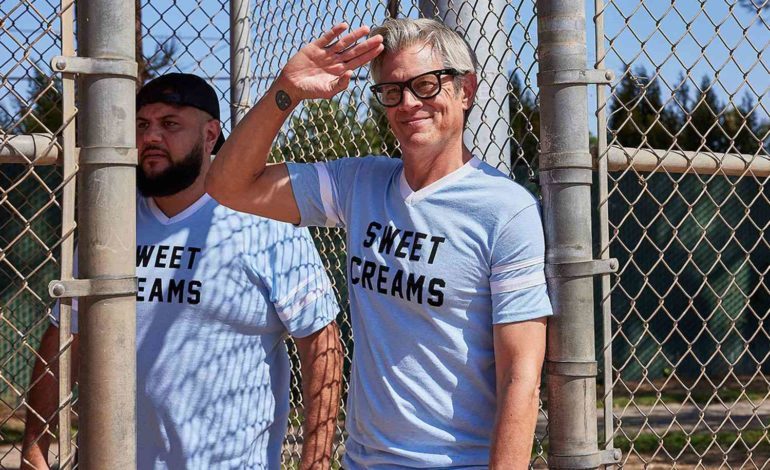

Director Lije Sarki, known for The Peanut Butter Falcon, promoted his new film Sweet Dreams in an in-depth interview with The Hollywood Reporter.
Sweet Dreams follows addict Morris (Johnny Knoxville) as he he begins his sobriety journey in order to fix his life. Worried about losing his house, Morris agrees to coach his sober living house’s softball team with other former addicts to win a cash prize. The film also stars Mo Amer, GaTa, Lee, Theo Von, Brian Van Holt, Jonnie Park, Shakewell, Adam Faison, Erik Anthony Gonzalez, Beth Grant, Jay Mohr, and Kate Upton.
Sweet Dreams draws on Sarki’s personal experiences. Sarki, who has been sober for 11 years, was inspired by a visit to sober living with his friend, he stated, “A few years back, I was picking up my friend from a sober living and taking him surfing. He’s now four years sober and his kid is four years old, his whole journey is incredible. It got me thinking about sober living because those [houses] can be filled with a really great, odd group of people. My friend helped me think of all of the different types of people who could live there and could come together as a team. I used to play softball with bars and stuff as I was coming along in life — more in my drinking days — and softball is an easier sport for everyone to play. It’s something that all the guys in the movie could do.”
The film’s star took the project very seriously, “It was very personal to him and he delivered. Overall, the whole thing, for the cast and myself, it was personal for everybody. Whether you are sober, you know someone who is or you know someone who is struggling, this touches so many people in our lives. There’s always one degree, whether it’s a family member, friend or loved one. No one had a hard time making the personal connection on this. My only job as a director was to ask, do I believe them? Do I believe what they are saying. I believed them every time.”
Sarki also reflected on a scene portraying a 12-step meeting, “The authenticity of the rooms is because I wrote exactly what I’ve experienced. A lot of the what’s said is stuff that I’ve said myself, versions of it or things I’ve experienced. Like the part about falling over on a bike, that’s me in a way. I look back on it now just grateful that nobody got hurt. I was very selfish at times.”
In the time since his alcohol abuse, Sarki has been able to reflect on his own story, saying, “There’s seriousness to what is said, but there’s also joy and laughter with it. Somebody said this to me a long time ago, that other people’s pain is funny now but your pain is funny later.”
Sarki hopes that the film will inspire some addicts to embrace sobriety. Read the full interview on The Hollywood Reporter.
